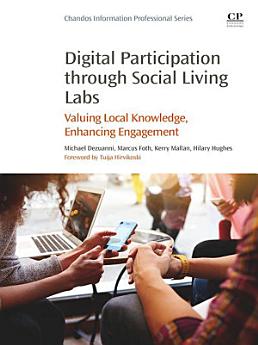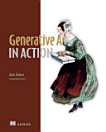Digital Participation through Social Living Labs: Valuing Local Knowledge, Enhancing Engagement
About this ebook
About the author
Michael Dezuanni is Deputy Director of Queensland University of Technology’s Children and Youth Research Centre, and member of QUT’s Digital Media Technology Research Centre. undertakes research and teaching in the field of digital cultures and education, which includes film and media education, digital literacies and Arts education. The aim of both his teaching and research is to explore the most effective, productive and meaningful ways for individuals to gain knowledge and understanding of the media and technologies in their lives.
Marcus Foth is founder and director of the Urban Informatics Research Lab, i/Director of the QUT Design Lab, and Professor in Interactive & Visual Design, School of Design, Creative Industries Faculty at Queensland University of Technology. Marcus’ research focuses on the relationships between people, place and technology. He leads a cross-disciplinary team that develops practical approaches to complex urban problems.
Kerry Mallan is a Research Professor in the Faculty of Education at QUT. Her work is cross-disciplinary with a focus on children’s literature, youth and popular culture, digital media texts and practices. Kerry was the founding director of the Children and Youth Research Centre at QUT.
Hilary Hughes is Coordinator for the MEd (Teacher-Librarianship) at QUT. Her interdisciplinary research focuses on information experience and informed learning in culturally diverse contexts and learning space design. In 2010, she was Fulbright Scholar-in-Residence at University of Colorado Denver, where she supported librarians and academics in developing informed learning strategies.






